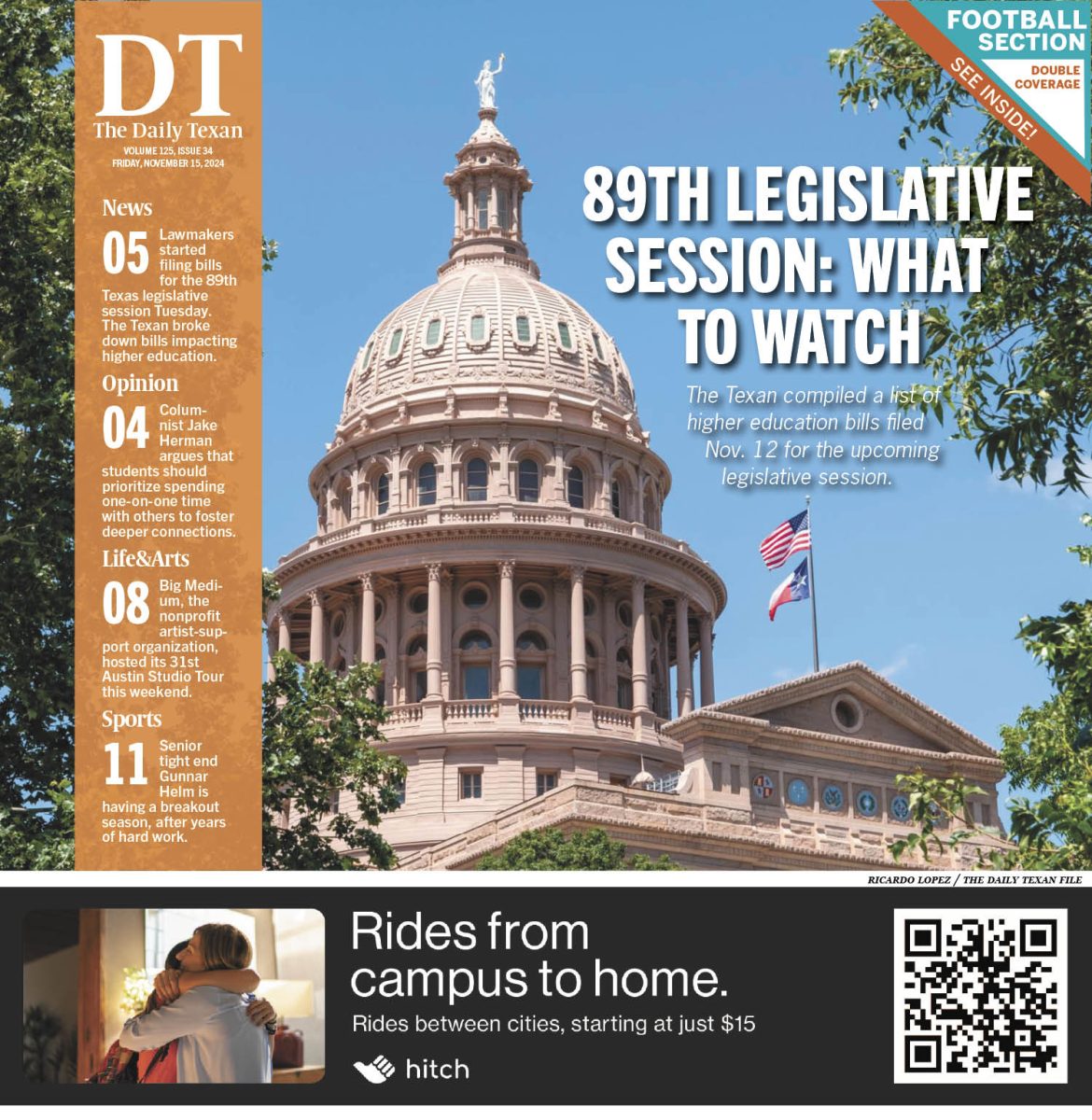Cover cost of diversifying halal dining options
September 22, 2021
Editor’s note: This column first appeared as part of the August 31 flipbook.
In Arabic, halal means “lawful” or “permitted.” Muslims are expected to adhere to a halal code of conduct and consumption, which states that meat is only halal if it’s slaughtered a certain way. For Muslim students on campus, eating halal can be difficult.
After a years-long fight led by the Muslim Students’ Association, halal options were finally introduced to UT’s dining halls in January 2020. Although the newfound availability of beef and chicken patties was a victory, the problem is that to this day, options are limited to just those two items.
UT should better provide for its Muslim students by allocating funding to cover the expenses of finding halal sourcing for a wider variety of options. This would go a long way in making these students feel more included on campus.
Ammar Abed, a biology and math senior serving as the incoming president of the association, said because halal options are also limited off-campus, the dining halls should diversify their offerings.
“I’m lucky because I’m a local and my parents would give me food to keep in the fridge,” Abed said. “But out-of-state students don’t have that option, and they can’t cook in the dorms, either. And for students looking for halal food off campus, there are limited options with little variety and high prices.”
Most of the students eating in the dining halls are freshmen acclimating to campus. A lack of proper dining accommodations alienate those in a new environment. But the issue goes beyond freshmen. Upperclassmen and graduate students may also rely on dining halls to provide their meals.
Ultimately, nutritious meals are a necessity, and Muslim students deserve the same accessibility to food as other students. The University must be proactive about accommodating students’ religious beliefs.
Dining director Rene Rodriguez said that his team is committed to expanding halal options, but the problem is twofold — first, a lack of local sourcing, and second, the cost.
“We’re trying to do it within the current price points, because we don’t want Muslim students to have to pay more money, especially because it’s a law. That’s not fair to our students,” Rodriguez said. “These suppliers’ price points are double what students are paying to come into the dining hall.”
Abed plans to resume the work of his predecessors and continue conversations with University Housing and Dining, but he also admitted that sourcing and cost are problems.
It’s admirable that UHD is committed to diversifying halal options, and it’s refreshing that Rodriguez is adamant that Muslim students should not have to pay more money. This is where UT needs to come in.
We have the second-largest endowment in the nation, meaning that the University has the capability to fund UHD’s initiative to expand halal options. In addition, schools with lesser endowments than UT such as New York University, Boston University, and UC Santa Cruz offer varied halal options in their dining halls. If they can afford to accommodate their Muslim students, UT definitely can.
Muhammad Shaukat, a graudate student studying electronics, photonics and quantum systems, wishes that there were more on-campus dining options available for him this fall when he starts the Commuter Meal Plan. He also has an idea for how the University could help accomodate Muslim students right now.
“It’s the administration’s responsibility to help cover the costs, especially considering UT is a top university that values diversity,” Shaukat said. “But they could also use the patties they currently have to make different things, like shawarma or pizza.”
UT’s website states that one of its goals is to “create a positive, comfortable environment” by providing “diverse, high-quality food options.” It’s time for Muslim students to be included in that commitment.
Michigan is a Plan II and race, indigeneity and migration junior from Shreveport, Louisiana.





